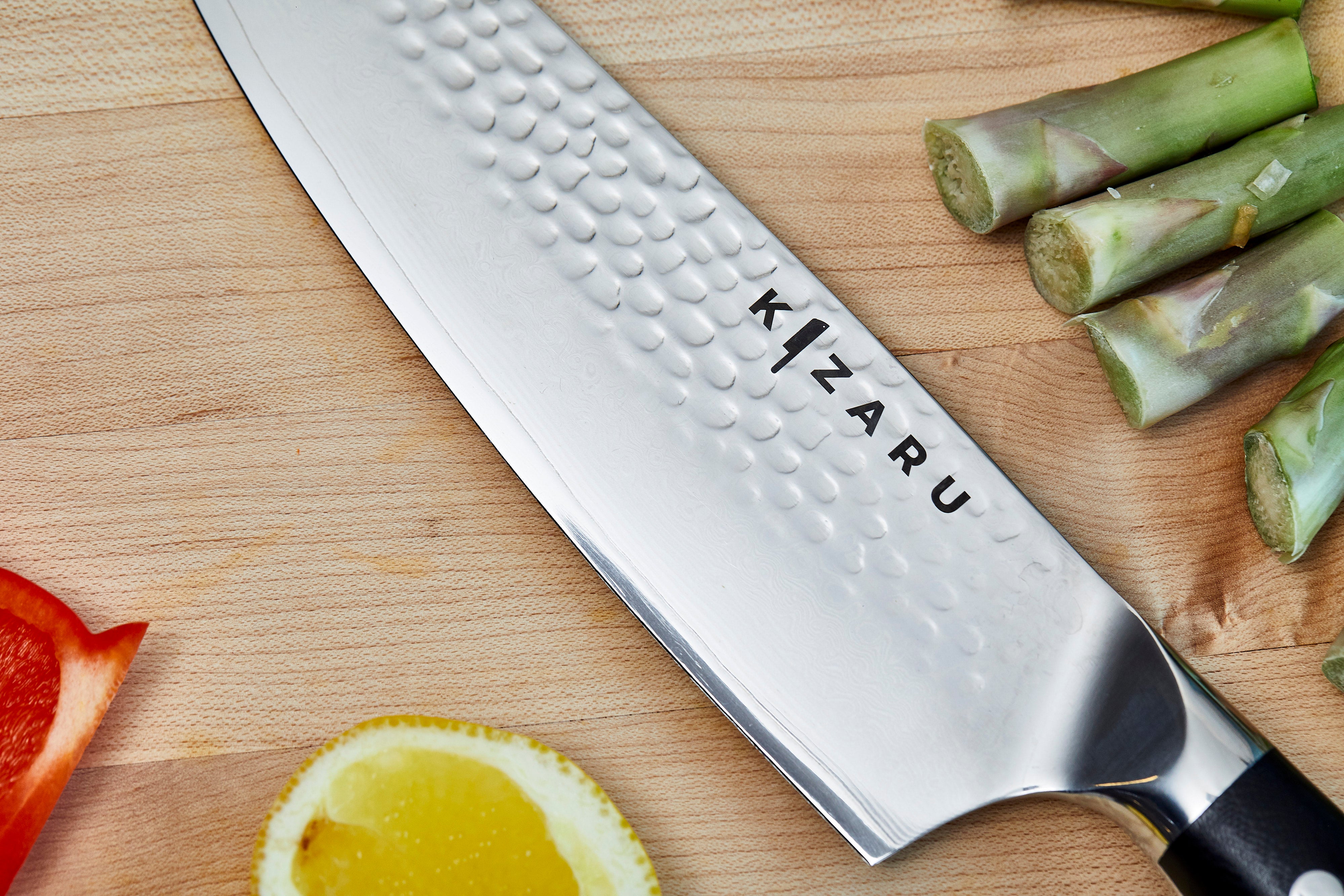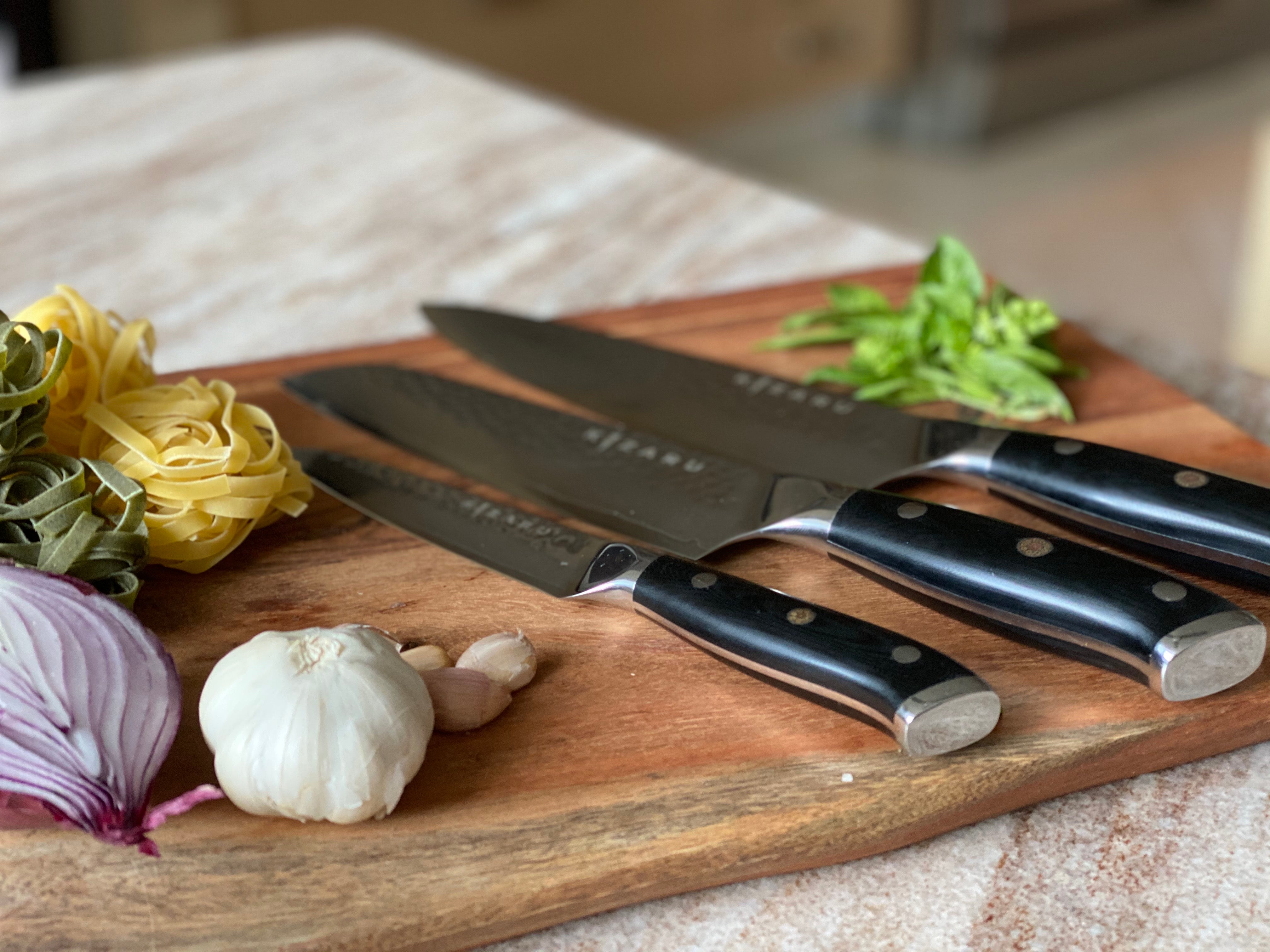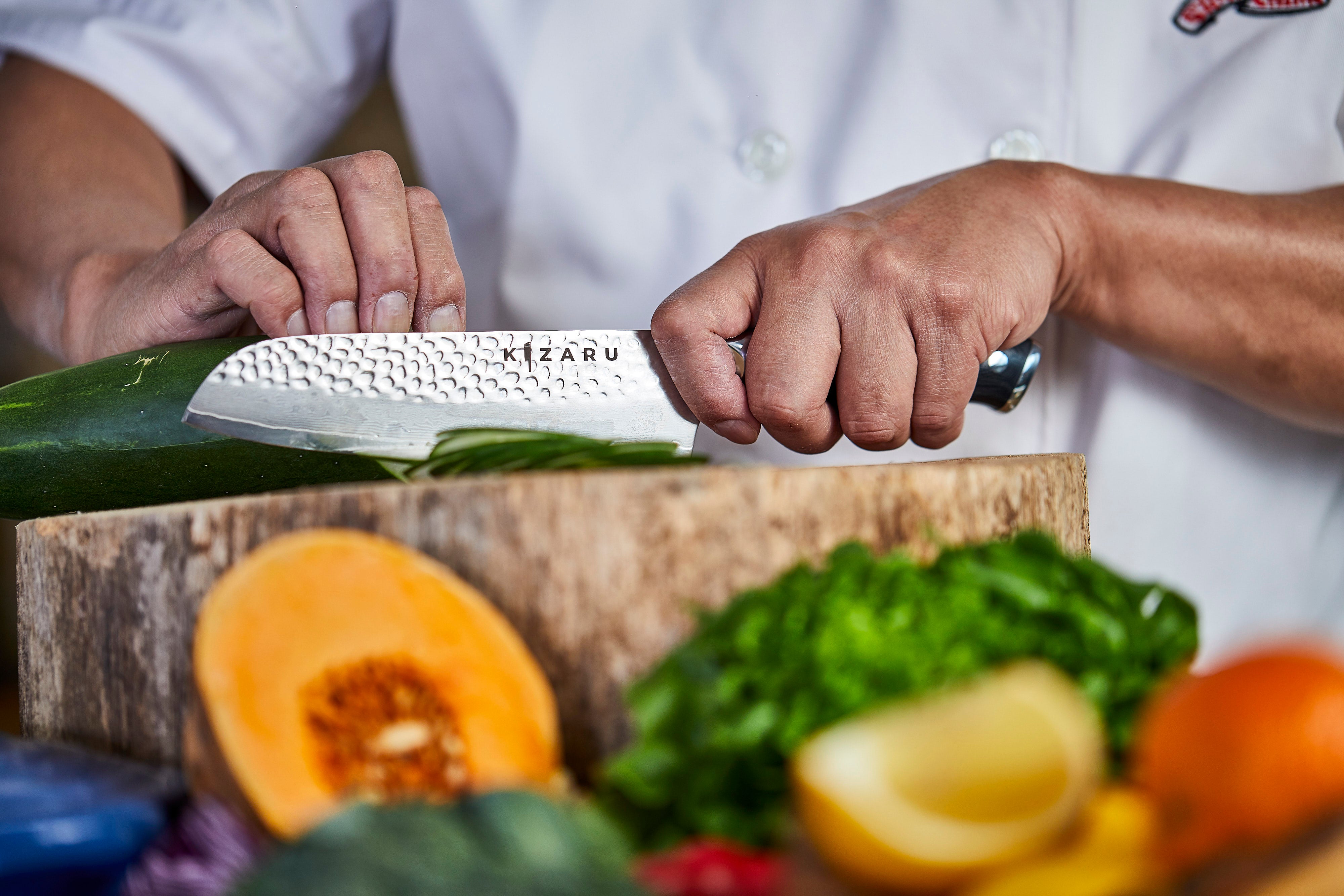
Japanese Vs. German Kitchen Knives | Which Ones Are Better?
When it comes to engineering and product quality, it's no secret that the Japanese and the Germans have been eternal rivals.
For example, in the automotive industry, Germany is known for BMW, Audi and Volkswagen, while Japan is represented by Lexus, Acura, and Infinity (among other brands).
But this rivalry doesn't end there. It extends to the knife-making industry, where fans are constantly making an argument for one or another, and leaving newcomers wondering which one is best. So, in this article we'll cover the pros and cons of each, with the hopes that you can formulate your own opinion.

The Unexciting Truth
Knives come in all shapes, steel types, angles, hardness levels, and so on—but the truth is that there are more similarities between Japanese and German knives than there are differences.
I know it's not an exciting revelation yet it simplifies understanding what sets them apart. If we covered every tiny difference, anyone reading this article would leave more confused than enlightened. Besides, as time passes and technology advances, they've been slowly becoming more similar, so these small differences have turned more into "tendencies" that are no longer rules.

Japanese & German Knives: The 2 Main Differences
The quickest way to illustrate their contrast is by explaining their two main differences—sharpness and durability.
While German knives are known for their durability and sturdiness, which facilitate a rocking style of chopping, Japanese knives are known for cutting smoothly with their razor sharp blades and delivering a butter-cooking experience.
This difference arises from the steel types of which they're made of. Since Japanese knives tend to be built with high-carbon steel, they chip easier but have the ultimate edge when it comes to sharpness—unlike German knives, whose blade contains less carbon and more stainless steel, resulting in the high durability that's highly convenient.

In conclusion, it's difficult to argue that one is superior over the other because they simply favor different preferences.
If you're obsessed with achieving clean, effortless cuts, then you'll probably lean toward Japanese knives. On the other hand, if you're looking for good reliable knives that require less maintenance but aren't as clinically sharp, then the German style may be your favorite.
Quick Recap:
- Japanese knives are sharper and lighter for handling.
- German knives aren't as sharp, but are more durable and resilient.

Japanese Knife Properties
- Angle: 20° - 22°.
- Hardness Level: Harder with 60 - 61 in the Rockwell scale, so it retains the edge better but it's more susceptible to chipping.
- Steel Type: High-carbon for the extra sharpness.
- Weight: Lighter for easy handling.
German Knife Properties
- Angle: 12° - 16°.
- Hardness Level: Softer with 56 - 59 in the Rockwell scale, so it doesn't retain the edge as well, but it's less susceptible to chipping.
- Steel Type: Stainless steel and less carbon content for extra durability.
- Weight: Heavier with a sturdy feel.

A Better Alternative
If you still don't know which one you'd rather have—a German or Japanese set— you're not alone. Even with all the pros and cons laid out, it's difficult to make a confident decision.
The good news is that you don't have to compromise. For those looking for their first high-quality knife set, we recommend getting the best of both worlds; in other words, knives whose blades are made of a balanced combination of high-carbon and stainless steel.
This choice provides a good sharpness level without sacrificing durability, or requiring tedious maintenance.
In particular, we recommend the Kanji Professional Damascus Knife Set.

While we may be biased, these knives were designed to work well in home kitchens. It's a step up from flimsy knives that don't meet the standard most homes should have, and it's a balanced choice between Japanese and German knives.
You can get them here.
With that said, what's most important is that you get the knife set that best suits you, keeping all the specifications covered in mind. In this way, you'll end up with knives you feel happy and comfortable with!



